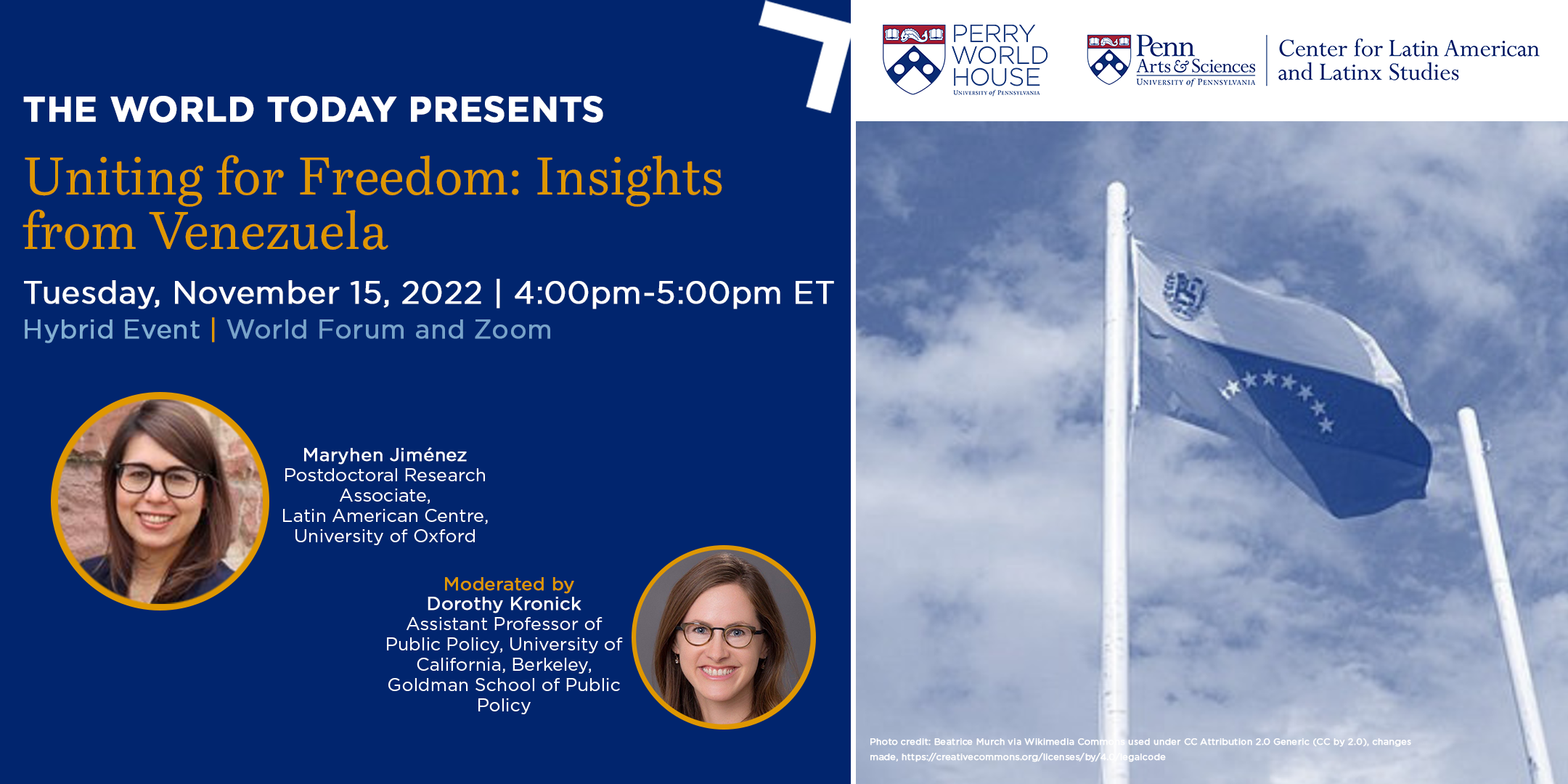As research on comparative authoritarianism has shown, opposition parties can, at times, win elections despite the various tools autocrats use to keep them from doing so. A vital step to increase competitiveness is the formation of opposition coalitions. Even though cooperating with peers can sometimes improve the overall situation of opposition parties, we often observe that opponents remain fragmented when challenging authoritarian incumbents. Why is this the case? What explains variation in opposition coordination? My research pays attention to the individual and collective dilemmas, decision-making processes and agency of opposition parties in autocratizing contexts. Using empirical evidence from contemporary Venezuela, including over 200 original interviews and iterative fieldwork over five years (2015-2020), I find that coordination is more likely under two conditions: When repression is both moderate and indiscriminate. When repression is either low or high levels and/or targeted towards specific parties, coordination among ideologically different parties is less likely to occur.
Maryhen Jiménez is a Marie Skłodowska-Curie Global Fellow at the University of Oxford (2022-2025). Prior to this, she held a Fritz Thyssen Postdoctoral Research Fellowship at the Latin American Centre at the University of Oxford (2021-2022). She obtained her PhD in Politics in 2020 at the same University. Her dissertation won the 2021 PSA Lord Bryce Award for best dissertation in comparative politics in the UK. At Oxford, she was also a Lecturer in Politics at (Lincoln College) and a tutor for Latin American Politics. She received an MPhil in Latin American Studies from Oxford and a BA in Political Science from the Goethe University Frankfurt (distinction) and has been an academic visitor at Princeton University and CIDE (Mexico). Her research spans the fields of comparative authoritarianism, democratization, opposition movements and political parties. Maryhen has previously worked at the Inter-American Court of Human Rights in Costa Rica and the Americas Division of Human Rights Watch in Washington DC. Her work has been published at journals, such as, Political Studies and Revista de Ciencia Política, Revista Elecciones. More on:
www.maryhenjimenez.com.
Dr. Jimenez will discuss how elected autocrats use repression to divide and conquer their opponents—and when opposition forces can coordinate despite these challenges. Her evidence comes from the emblematic case of Venezuela, but the lessons are relevant to citizens and politicians everywhere.
Co-sponsored by CLALS


 Center for Latin American and Latinx Studies
Center for Latin American and Latinx Studies